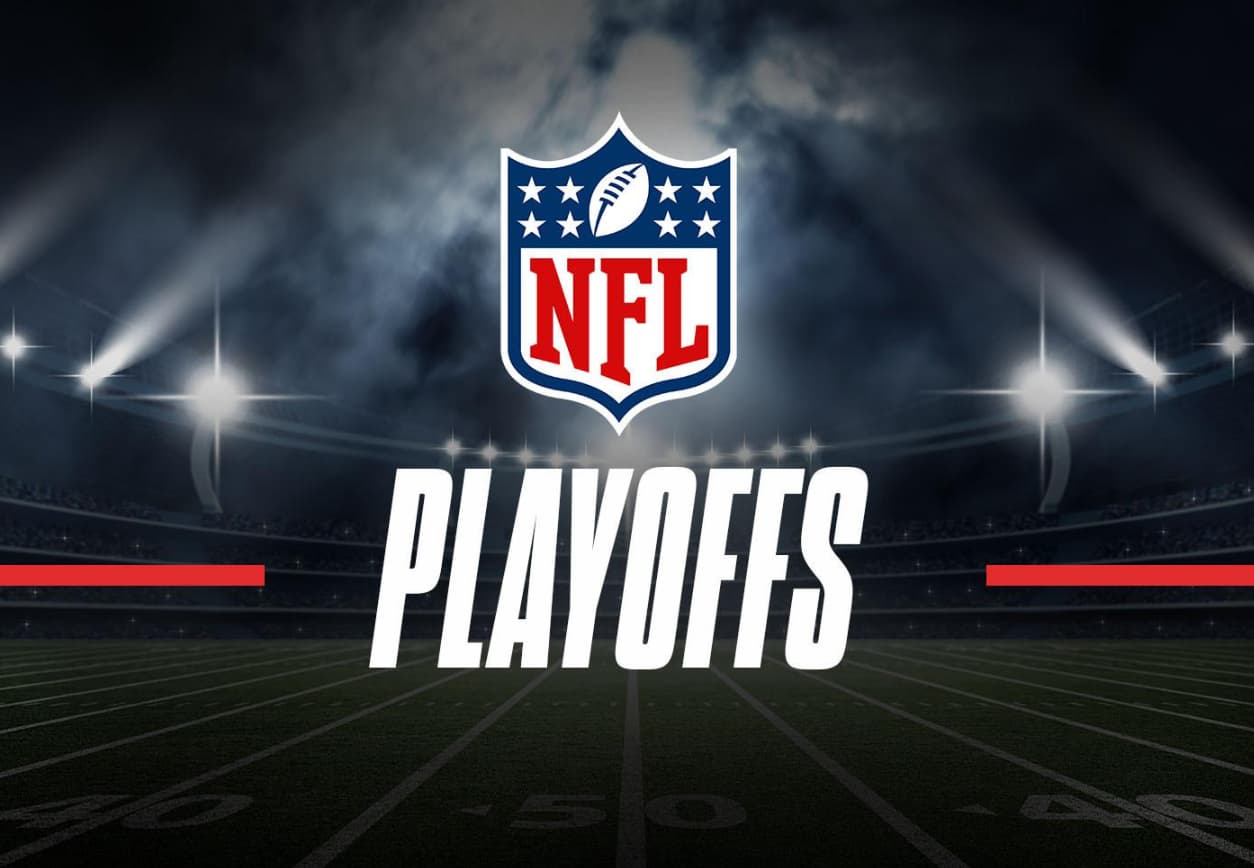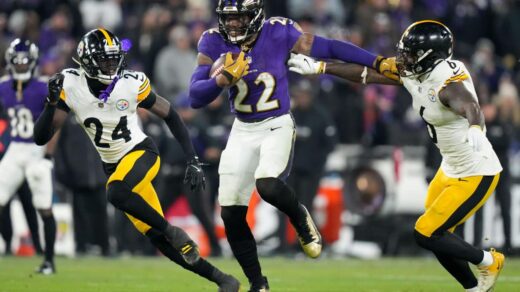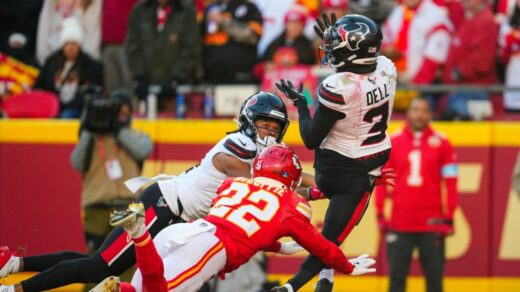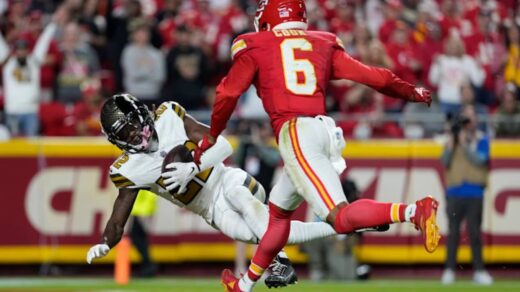The NFL playoffs represent the most exciting—and most profitable—betting opportunity of the football season.
Unlike the regular season, where you’re handicapping 16 games per week, playoff betting lets you focus on a handful of matchups featuring the league’s best teams.
Understanding NFL playoff point spreads is essential, whether you’re a seasoned bettor or just getting started.
This guide breaks down everything you need to know about playoff spreads, how they work, betting strategies that win, and why postseason lines differ dramatically from regular season action.
NFL Playoff Point Spreads

Let’s dive into the world of playoff betting, where every game matters and the stakes couldn’t be higher.
Quick Answer: What Are NFL Playoff Point Spreads?
NFL playoff point spreads are betting lines set by sportsbooks to level the playing field between two teams.
The favorite must win by more than the spread number, while the underdog can lose by less than the spread (or win outright) for bettors to cash winning tickets.
Playoff spreads typically range from 1.5 to 10 points, depending on matchup quality and home-field advantage.
How NFL Playoff Point Spreads Actually Work?
Point spread betting is the most popular way to wager on NFL playoff games. Instead of simply picking which team wins, you’re betting on the margin of victory.
Here’s a real example from a recent playoff matchup:
Detroit Lions -8.5 vs. Washington Commanders +8.5
The Lions are favored by 8.5 points. This means:
- If you bet Detroit -8.5, the Lions must win by 9+ points for you to win
- If you bet Washington +8.5, the Commanders can lose by 8 or fewer points (or win outright) for you to win
- The half-point (.5) eliminates the possibility of a push (tie)
Most NFL playoff point spreads come with -110 odds on both sides. This means you risk $110 to win $100, with the extra $10 representing the sportsbook’s commission (called the “vig” or “juice”).
Key spread betting terms:
- Covering the spread – Winning your bet based on the point margin
- Push – When the final margin equals the exact spread (your stake is refunded)
- Moving the line – When sportsbooks adjust spreads based on betting action
- Key numbers – Common margins like 3, 7, and 10 (field goal, touchdown, touchdown + field goal)
The 2025 NFL Playoff Schedule and Matchups
This year’s playoff format features 14 teams competing across three rounds before Super Bowl 59. Here’s when the games take place:
Wild Card Weekend: January 11-13, 2025
- Saturday, January 11: Two games
- Sunday, January 12: Three games
- Monday, January 13: One game
Divisional Round: January 18-19, 2025
- Saturday, January 18: Two games
- Sunday, January 19: Two games
Conference Championships: January 26, 2025
- AFC Championship Game (CBS)
- NFC Championship Game (FOX)
Super Bowl 59: February 9, 2025 (FOX)
- Kansas City Chiefs vs. Philadelphia Eagles
- Location: Caesars Superdome, New Orleans
- Kickoff: 6:30 PM ET
The current Super Bowl spread has the Chiefs as 1.5-point favorites over the Eagles, with Philadelphia listed at +112 on the moneyline and a total of 49.5 points.
This tight spread reflects how evenly matched these teams are—a rematch of Super Bowl 57, where Kansas City won 38-35.
How Playoff Spreads Differ From Regular Season Lines?
NFL playoff point spreads behave differently from regular season lines for several important reasons that smart bettors understand.
- Sharper betting action: Casual bettors fade away during the playoffs, replaced by experienced handicappers. This means playoff lines are generally more efficient and harder to beat.
- Home-field advantage amplifies: Playing at home during January in places like Buffalo, Green Bay, or Kansas City provides massive advantages. Sportsbooks adjust spreads accordingly, sometimes adding 1-2 extra points beyond the standard 2.5-point home bonus.
- Motivation equalizes: During the regular season, some teams are already thinking about the offseason. In the playoffs, every team is 100% locked in. This reduces blowout potential and leads to tighter spreads.
- Smaller sample size: With only 14 teams cutting, you’re dealing with the league’s best. The gap between the 1-seed and 7-seed is smaller than the gap between Week 1’s best and worst teams.
- Coaching matters more: Playoff coaching adjustments carry more weight. Andy Reid’s playoff history or Kyle Shanahan’s offensive schemes become bigger factors in setting lines.
| Factor | Regular Season | Playoffs |
|---|---|---|
| Typical spread range | 1 to 14 points | 1.5 to 10 points |
| Home field bonus | ~2.5 points | ~3-4 points |
| Motivation level | Varies greatly | Maxed out |
| Blowout potential | Higher | Lower |
| Line movement | Moderate | Significant |
Top Sportsbooks for Betting NFL Playoff Point Spreads
Not all sportsbooks offer the same value when betting playoff spreads. Here are the top platforms for postseason action:
- DraftKings Sportsbook offers aggressive profit boosts throughout the playoffs. You’ll regularly find 20-30% boosts on featured spreads, especially for primetime games. Their Same Game Parlay options also let you combine spreads with player props creatively.
- FanDuel Sportsbook excels with alternative spread options. If the main line is Chiefs -1.5, FanDuel might offer Chiefs -7.5 at +210 or Chiefs +4.5 at -175. This flexibility helps you find better value based on your prediction.
- BetMGM Sportsbook distributes SGP boost tokens during the playoffs, giving you 50% bigger payouts on parlays that include spread bets. Their early lines also often differ slightly from competitors, creating line shopping opportunities.
- Bet365 Sportsbook provides daily “Bet Boosts” once January arrives, frequently targeting playoff spreads. Their international odds format also sometimes reveals softer lines than American books.
- Caesars Sportsbook maintains competitive odds and frequently runs second-chance promotions where losing spread bets get refunded up to a certain amount during Wild Card weekend.
- Pro tip: Always shop lines across multiple books. A difference between Chiefs -1.5 at one book and Chiefs -2.5 at another could be the difference between winning and losing.
Understanding the Current Playoff Format
The NFL expanded to a 14-team playoff format starting in 2020, changing how bettors should approach postseason spreads.
Here’s what changed:
Previously, six teams from each conference made the playoffs. Four teams played Wild Card weekend while two received first-round byes. Now, seven teams per conference qualify, and only one team gets a bye.
Why this matters for spreads:
The #1 seed gets a massive rest advantage while the #2 seed must play an extra game. This creates value in betting against exhausted #2 seeds in Championship rounds, especially if they played a physically demanding Divisional game.
The extra Wild Card game also means weaker #7 seeds making the playoffs. Last season, Tampa Bay snuck in at 8-9. These marginal playoff teams often face double-digit spreads against division winners.
Current playoff bracket structure:
- #1 seed: First-round bye, hosts Divisional Round
- #2 seed: Hosts Wild Card, must win three straight for Super Bowl
- #3-4 seeds: Division winners hosting Wild Card games
- #5-7 seeds: Wild Card visitors, no home games until Championship (if they reach it)
When evaluating NFL playoff point spreads, consider how many games each team has played. A rested #1 seed in the Divisional Round has historically covered spreads at higher rates than regular season favorites.
Key Factors That Move Playoff Spreads
Understanding what influences line movement helps you identify betting value. Here are the biggest factors affecting NFL playoff point spreads:
- Weather conditions: January football in northern cities can be brutal. Heavy snow, wind, or freezing temperatures typically move totals down and slightly favor underdogs. Books adjust spreads by 0.5-1 point in extreme conditions.
- Injury reports: Star quarterback injuries can shift spreads by 3-7 points instantly. Elite pass rushers or shutdown corners being ruled out might move lines 1-2 points. Always wait for final injury reports before betting.
- Sharp money vs. public betting: When 75% of bets are on one side but the line moves the opposite direction, sharp bettors are hammering the other side. This “reverse line movement” signals where professional money sits.
- Recent performance: A team that won their Wild Card game by 20+ points might see their Divisional Round spread increase by 1-2 points due to recency bias, even if the matchup doesn’t warrant it.
- Rest differentials: If one team played Saturday and their opponent played Monday, the Saturday team gets 48 extra hours of rest and preparation. Books might adjust spreads by 0.5-1 point.
- Historical matchups: When division rivals meet in the playoffs (like Chiefs-Raiders or Eagles-Cowboys), spreads often tighten because teams know each other intimately.
Winning Strategies for Betting Playoff Spreads
Successful playoff spread betting requires different approaches than regular season wagering.
Here are proven strategies:
- Target home underdogs early in Wild Card round: Public bettors love favorites, creating value on home dogs getting 3+ points. These teams earned playoff spots and have a crowd advantage—they’re live to win outright.
- Fade trendy public favorites: When casual fans pile on popular teams like the Cowboys or Packers, the line inflates beyond its true value. Going against public perception in the playoffs consistently finds edges.
- Respect key numbers: Getting +3 or +7 is massively more valuable than +2.5 or +6.5. NFL games commonly end with 3-point or 7-point margins. Never lay extra juice to move through key numbers when betting favorites.
- Consider game script scenarios: If you expect a blowout, the favorite needs a big early lead to maintain motivation. If you expect a close game, underdogs become more valuable because garbage-time scoring helps them cover.
- Bet the middle when possible: If you can get opposite sides of key numbers (Team A -2.5 early, Team A +3.5 later), you can win both bets if the margin falls at exactly 3.
- Use teasers strategically: Six-point teasers let you move NFL playoff point spreads through key numbers. Taking a -7.5 favorite down to -1.5 or a +1.5 underdog up to +7.5 dramatically improves win probability.
Reading Playoff Spread Movement and Line Shopping
Lines move for two reasons: balancing action or reflecting a sharp opinion. Learning to distinguish between them creates betting opportunities.
- Steam moves: When multiple sharp bettors hit the same side simultaneously, books move the line quickly—sometimes 1-2 points within minutes. Following steam moves can be profitable, but you must act fast.
- Slow drifts: When spreads gradually move over several days, it usually reflects steady public betting on one side. These slow drifts often create reverse line movement opportunities.
Example of profitable line shopping:
Let’s say you want to bet the Eagles +1.5 in the Super Bowl. Here’s what different books might offer:
- DraftKings: Eagles +1.5 (-115)
- FanDuel: Eagles +1.5 (-108)
- BetMGM: Eagles +1.5 (-110)
- Caesars: Eagles +2 (-120)
The best value is FanDuel at -108. On a $100 bet, you save $7 in juice compared to DraftKings. Over a full playoff slate, line shopping adds hundreds to your bottom line.
Tools for tracking spreads:
- Odds comparison websites show real-time lines across 20+ sportsbooks
- Line movement charts reveal how spreads changed over time
- Steam notification services alert you to sharp action
- Betting communities discuss value plays and line analysis
Common Mistakes Betting Playoff Spreads
Even experienced bettors fall into these traps during playoff season:
- Overvaluing regular season performance: A team that went 13-4 isn’t necessarily 8.5 points better than a 9-8 Wild Card team in the playoffs. Postseason matchups reset expectations.
- Ignoring situational spots: A quarterback making his first career playoff start faces immense pressure. Public bettors underestimate how this affects performance.
- Chasing losses with parlays: Losing your Wild Card bets and trying to recover with Divisional Round parlays typically compounds losses. Stick to your strategy.
- Betting every game: Quality over quantity applies double in the playoffs. If you don’t have a strong conviction, sit out that game entirely.
- Disrespecting home dogs: Home underdogs in playoff games cover spreads at roughly 55% historically. The crowd and familiarity with conditions matter enormously.
- Following popular narratives: “This quarterback is due for a playoff breakout” or “That defense always shows up in January” are lazy narratives. Base decisions on matchup-specific analysis.
Historical Trends in NFL Playoff Point Spreads
Looking at past playoff data reveals patterns that inform better betting decisions:
- Favorites vs. underdogs overall: Since 2010, playoff favorites cover spreads at roughly 48-52%—essentially a coin flip after accounting for juice. This confirms the market is efficient.
- Home vs. away teams: Home teams cover about 51% of the time in Wild Card and Divisional rounds, dropping to 49% in Championship games. Home field provides less edge as the competition improves.
- Division winners vs. Wild Cards: Teams hosting Wild Card games (seeds #3-4) cover spreads at only 45% historically. These are often overvalued by the market.
- Revenge game angles: When teams face opponents who beat them in the regular season, underdogs cover 57% of the time. The loser typically makes adjustments.
- Conference Championship dogs: Underdogs in Championship games have covered 58% of spreads over the past 15 years—one of the most profitable playoff trends.
- Super Bowl spreads: The underdog has covered in 19 of the last 30 Super Bowls. Two-week preparation time helps underdogs close talent gaps.
Betting Playoff Spreads vs. Moneylines vs. Totals
NFL playoff point spreads aren’t the only betting option. Understanding when to use spreads versus alternative bet types maximizes value.
When to bet spreads:
- Mismatched games where the favorites are overpriced on the moneyline
- Games you expect to be competitive throughout
- When you have conviction on the margin but not an outright winner
- Taking advantage of key numbers like +3 or +7
When to bet moneylines instead:
- Heavy underdogs you believe can win outright (better payout than spread)
- Avoiding a backdoor cover situation in blowouts
- Removing the worry about late, meaningless scores
When to bet totals:
- Weather creates a clear Over/Under value
- You don’t have a strong opinion on the winner, but do on game flow
- Combining with a spread bet for correlation (high-scoring games favor underdogs)
Example scenario:
Chiefs -9.5 vs. Steelers with a total of 44.5. If you think Pittsburgh keeps it close but low-scoring, you’d bet Steelers +9.5 and Under 44.5. These correlate positively—close games tend to be lower scoring.
Advanced Concepts: Alternate Spreads and Teasers
Beyond standard NFL playoff point spreads, advanced bettors utilize alternate lines and teasers for strategic advantages.
Alternate spreads let you adjust the line in exchange for different odds:
Standard line: Chiefs -1.5 (-110) Alternate options:
- Chiefs -7.5 (+210)
- Chiefs +4.5 (-175)
- Chiefs -0.5 (+100)
If you’re confident Kansas City wins convincingly, taking -7.5 at +210 offers better value than a standard moneyline bet.
Teasers allow you to move the spread 6, 6.5, or 7 points in your favor across multiple games:
Original spreads:
- Eagles +1.5
- 49ers -8.5
6-point teaser:
- Eagles +7.5
- 49ers -2.5
You need both legs to win, but moving through key numbers dramatically improves your chances. The ideal teaser moves underdogs from +1.5 to +7.5 or favorites from -7.5 to -1.5.
Wong teasers (named after sharp bettor Stanford Wong) specifically target moving through 3 and 7:
- Underdog from +1.5 to +7.5 (crosses both key numbers)
- Favorite from -7.5 to -1.5 (crosses both key numbers)
These mathematically optimal teasers win roughly 72-73% of individual legs, making two-team teasers profitable long-term at -110 odds.
Live Betting Playoff Spreads During Games
In-game betting on NFL playoff point spreads has exploded in popularity, offering dynamic opportunities throughout each matchup.
How live spreads work:
The spread constantly adjusts based on:
- Current score
- Time remaining
- Field position
- Momentum shifts
- Injury developments
Example: Eagles opened +1.5 pre-game. If they score a touchdown on the opening drive, the live line might flip to Eagles -3.5. If you believed in Philadelphia all along, you missed value—but if you think Kansas City will dominate moving forward, getting Chiefs +3.5 live offers tremendous value.
Live betting strategies:
- Bet against momentum: When casual live bettors overreact to a big play, the line overcorrects. Fading extreme momentum swings win long term.
- Middle opportunities: If you bet Eagles +1.5 pre-game and they take a 10-0 lead, you can bet Chiefs +4.5 live. Now you win both if the final margin is 2-4 points.
- End-game scenarios: Understanding prevent defense and clock management helps predict how final drives play out. Teams protecting leads often allow meaningless scores that swing live spreads.
- Halftime adjustments: Coaches make strategic changes at halftime. Betting the second-half spread requires predicting which team adjusts better schematically.
Super Bowl 59: Chiefs vs. Eagles Spread Analysis
The championship matchup features Kansas City as 1.5-point favorites over Philadelphia—one of the tightest Super Bowl spreads in recent memory.
Why the spread is so close:
Both teams dominated their conference. The Chiefs showcased playoff experience with Andy Reid and Patrick Mahomes seeking another ring. The Eagles countered with a powerful roster featuring an elite offensive line and emerging stars.
The neutral-site setting in New Orleans eliminates pure home-field advantage, though Chiefs fans typically travel better than most franchises.
Key matchup factors:
- Philadelphia’s defensive front vs. Kansas City’s offensive line
- Mahomes’ playoff brilliance vs. Eagles’ secondary
- Jason Kelce’s leadership in the potential final game
- Eagles’ rushing attack vs. Chiefs’ run defense
- Special teams advantages and coaching decisions
Betting considerations:
At -110 odds on both sides, there’s no value advantage either way based purely on odds. This forces bettors to make strong conviction picks based on matchup analysis rather than finding market inefficiency.
Historical trends suggest narrow Super Bowl spreads favor the underdog, as two-week preparation helps close talent gaps. The Eagles +1.5 or +112 moneyline might offer slightly better value if you believe in Philadelphia.
Conversely, betting Chiefs -1.5 essentially means you think they win outright, removing the stress of a backdoor cover situation.
Frequently Asked Questions
- What are NFL playoff point spreads?
NFL playoff point spreads are betting lines where the favored team must win by more than the posted number for bettors to win their wager. The underdog can lose by less than the spread (or win outright) for underdog bettors to cash their tickets. Standard juice is -110 on both sides.
- How do playoff spreads differ from regular season spreads?
Playoff spreads are typically tighter because only the league’s best teams qualify. Home-field advantage counts more in January weather, sharp bettors make up a larger percentage of the betting pool, and motivation levels equalize since every team is fully focused. Blowouts occur less frequently.
- Which sportsbooks offer the best playoff spread odds?
DraftKings, FanDuel, BetMGM, Bet365, and Caesars all provide competitive playoff spreads with various bonuses. Line shopping across multiple books is essential because even half-point differences significantly impact long-term profitability. Each book also offers unique promotions during playoff season.
- Should I bet favorites or the underdogs in the playoffs?
Historical data shows playoff favorites cover roughly 48-52% of spreads overall—essentially even money. Home underdogs in early rounds and Conference Championship underdogs have historically covered at higher rates. The key is analyzing specific matchups rather than blindly following favorites or dogs.
- What are the key numbers in NFL playoff spreads?
Key numbers are common margins of victory that occur more frequently. The most important are 3 (field goal) and 7 (touchdown), followed by 10 (touchdown + field goal), 4 (two field goals), and 6 (two field goals or touchdown with missed extra point). Getting through key numbers when betting or teasing is crucial.
- Can I combine playoff spreads in parlays?
Yes, most sportsbooks allow you to parlay multiple playoff spreads together for higher payouts. However, the odds of winning decrease with each additional leg. Two-team parlays are mathematically the most efficient. Same Game Parlays (SGPs) also let you combine spreads with player props from a single game.








